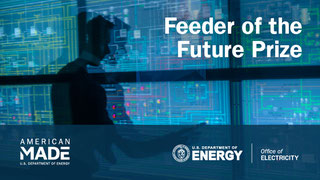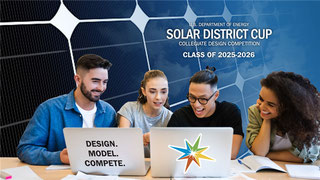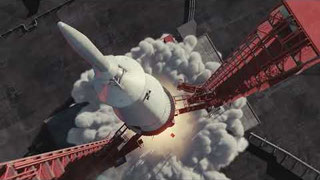The Challenge
We are on a mission to find which specific open source technologies need to be developed and integrated to power voice-enabled products. We want to open up the voice product development process, to make it transparent and accessible to everyone.
The first two steps in this direction have been the Common Voice project, the compilation of a multilingual, open and publicly available dataset of labeled audio samples to be used to train voice-enabled applications, and Mozilla Speech open source projects (text-to-speech engine, and speech-to-text engine).
Now, we’re taking the next step: we would like to identify and integrate a full plan to define the voice technology space by creating a “stack” of open source technologies to support the development of new voice-enabled products. Click on the orange ACCEPT CHALLENGE Button to apply!
The Objective
To create a comprehensive stack of open-source voice-enabled technologies for the development of voice-enabled products.
We envision that some elements of this stack would be the following technologies:
- Language parsing: stemming, entity recognition, dialog management, and summarization
- Intent parsing
- Keyword alignment
- Keyword spotting
- Voice-signal processing
- Natural Language Processing (NLP)
- Text-to-speech (TSS)
- Speech-to-text (STT)
We want to improve this list by adding more relevant technologies and then place the list in a public repository for open access. To achieve this, all proposed technologies in the stack need to be open-source licensed.
Your Solution
When composing the stack, HeroX Solvers should answer the following questions:
- Which specific technologies need to be added to this list? Please, provide a detailed explanation of why each of them deserves to be added to the list. The quality of this explanation is as important as the number of proposed specific technologies.
- What open source options are available for each of these technologies? Please, provide an estimate of their quality.
- What would a full stack of open source voice technologies look like? Please, choose an open-source project for each piece and describe the “architecture” that would bring all the pieces together. Tell us why you made the choices you did.
- How would these open source options work with one another? Are there any technical challenges to be solved to make the stack work?
- Are there any “gaps” in the stack where quality open source projects are not available? If yes, please provide a description of that gap and a thorough explanation of why existing open-source projects are not useful and what functions a new project would need to perform to fill the gap.
Prizes
A total prize pool of up to $6,000 is available
- Up to 2 grand prizes x $1,500 each
- Up to 2 runner up prizes x $750 each
- Up to 3 honorable mentions x $500
Timeline:
- Open to submissions: June 20, 2019
- Submission deadline: September 19, 2019
- Judging: September 20 to October 21, 2019
- Winners Announced: October 24, 2019
Other links:
- Recent Updates
- Forum
Click on the orange "Accept Challenge" Button to apply!
How do I win?
To be eligible for an award, your proposal must, at a minimum:
- Be scored higher than your competitors!
- Thoughtfully address the Submission Form questions
- Satisfy the Judging Scorecard requirements
Judging Scorecard
- The completeness of the proposed technologies in the technology stack:
- At least one specific technology/open source project should be proposed for each element of the stack. We’re not interested in a simple discussion of technologies listed in the Overview.
- A clear reason why this particular technology was added to the stack has to be clearly articulated.
- If there are “gaps” in the stack where quality open source projects are not available, we are interested in a description of that gap. A thorough explanation of why existing open source projects are not useful and what functions a new project would need to perform to fill the gap needs to be provided.
- It’s crucial to remember that we’re only interested in open source technologies. Patented technologies, regardless of the owner of the patent(s) will not be considered.
- The quality of description of each individual piece of the stack and the “architecture” keeping these pieces together:
- The quality of the description of each individual entry in the proposed technology stack is very important. Submissions presenting fewer but better described specific technologies will be preferred over those presenting a larger number of technologies without proper explanation.
- Special attention will be paid to the “architecture” aspect of the submission, specifically how the pieces should be optimized to work together. It is this aspect that will make a difference between grand prize-level and other submissions.
Intellectual Property
We’re looking for open source solutions that empower voice-enabled technology. If you choose to submit any code, ensure that it is already under an open source license OR you are comfortable granting Mozilla a license to use the code and, if you win, assigning the ownership of the code to Mozilla. In cases where ownership is assigned to Mozilla, Mozilla may choose to make the code open source. You can view the full details on the intellectual property structure in the legal agreement.
Rules
Participation Eligibility:
The challenge is open to all adult individuals, private teams, public teams, and collegiate teams. Teams may originate from any country. Submissions must be made in English. All challenge-related communication will be in English.
No specific qualifications or expertise in the field of voice-enabled technology is required. Prize organizers encourage outside individuals and non-expert teams to compete and propose new solutions.
To be eligible to compete, you must comply with all the terms of the challenge as defined in the Challenge-Specific Agreement.
Registration and Submissions:
Submissions must be made online (only), via upload to the HeroX.com website, on or before September 19, 2019, 5 pm EDT. No late submissions will be accepted.
Selection of Winners:
Based on the winning criteria, prizes will be awarded per the Judging Criteria section above. In the case of a tie, the winner(s) will be selected based on the highest votes from the Judges.
Additional Information
- Void wherever restricted or prohibited by law.
- No purchase or payment of any kind is necessary to enter or win the competition.
- All ineligible applicants will be automatically removed from the competition with no recourse or reimbursement.
- All applications will go through a process of due diligence; any application found to be misrepresentative, plagiarized, or sharing an idea that is not their own will be automatically disqualified.
- By participating in the challenge, each competitor agrees to submit only their original idea. Any indication of "copying" amongst competitors is grounds for disqualification.








